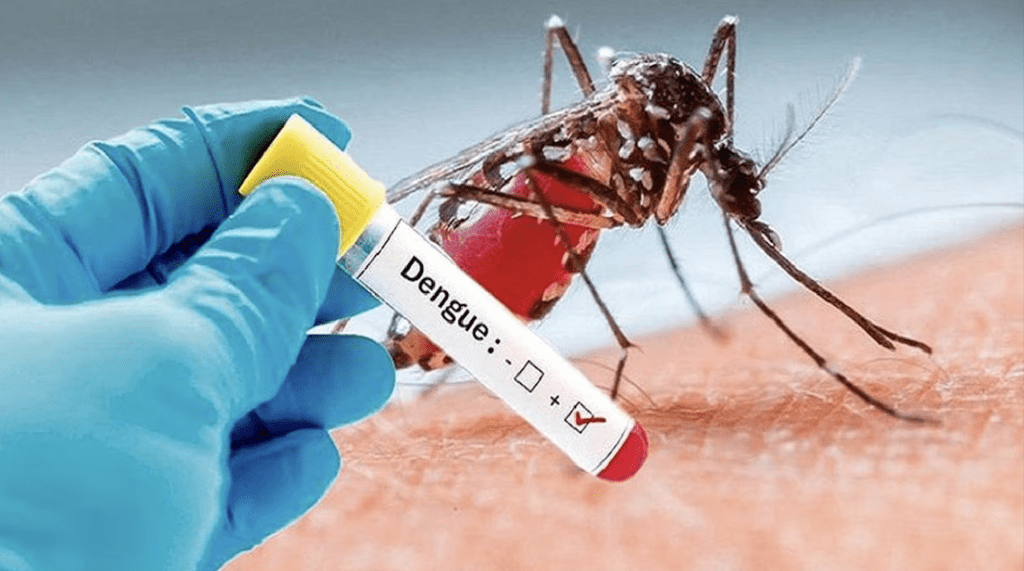Dengue fever is a mosquito-borne viral infection that affects millions of people every year, particularly in tropical and subtropical regions. With no specific antiviral treatment available, early detection and prevention are crucial in reducing the severity and spread of the disease. In this blog, we’ll cover the early signs of dengue, treatment options, and key prevention strategies that can help protect you and your family.
What is Dengue Fever?
Dengue is caused by the dengue virus, which is transmitted to humans through the bite of infected female Aedes aegypti mosquitoes. There are four types of dengue viruses (DENV-1 to DENV-4), meaning a person can be infected multiple times in their lifetime. While most cases are mild, severe dengue—also known as Dengue Hemorrhagic Fever (DHF)—can lead to bleeding, low blood pressure, organ damage, and even death.
Early Signs and Symptoms of Dengue Fever
Dengue symptoms usually begin 4 to 10 days after being bitten by an infected mosquito. Common early signs include:
1. Sudden High Fever
- Rapid onset of fever reaching up to 104°F (40°C)
- One of the first and most prominent symptoms
2. Severe Headache
- Intense pain, especially behind the eyes
- Often accompanied by eye movement discomfort
3. Muscle, Bone, and Joint Pain
- Known as “breakbone fever” due to severe joint and muscle aches
4. Nausea and Vomiting
- Often leads to poor appetite and dehydration
5. Skin Rash
- A red, patchy rash may appear a few days after fever begins
- It may itch or peel as it resolves
6. Fatigue and Weakness
- Persistent tiredness even after the fever subsides
7. Mild Bleeding
- Signs may include bleeding gums, nosebleeds, or easy bruising
- Important to monitor closely, especially in children and elderly patients
Warning Signs of Severe Dengue
Severe dengue usually develops after the fever subsides. Warning signs that require immediate medical attention include:
- Severe abdominal pain
- Persistent vomiting
- Bleeding under the skin or from the nose/mouth
- Difficulty breathing
- Cold or clammy skin
- Extreme fatigue or restlessness
Diagnosing Dengue Fever
Diagnosis is confirmed through:
- Blood tests to detect the dengue virus or antibodies
- Complete blood count (CBC) to monitor platelet levels and hematocrit
Your doctor may recommend regular monitoring if you have a confirmed case, especially during the critical phase (3–7 days after fever onset) when complications can arise.
Treatment Options for Dengue
There is no specific antiviral drug for dengue. Treatment focuses on supportive care and managing symptoms:
1. Hydration
- Drink plenty of fluids to avoid dehydration
- Oral rehydration solutions (ORS) are highly recommended
2. Fever and Pain Relief
- Use paracetamol (acetaminophen) to reduce fever and discomfort
- Avoid aspirin and ibuprofen, as they increase the risk of bleeding
3. Rest and Monitoring
- Rest in a cool, mosquito-free environment
- Monitor symptoms, especially for signs of severe dengue
Hospitalization may be required in cases of severe dengue for intravenous (IV) fluids, close observation, and possible blood transfusions.
Preventing Dengue Fever
Prevention is the most effective way to protect yourself from dengue. Since there is no commercial vaccine available in many regions, the focus remains on avoiding mosquito bites and reducing mosquito breeding grounds.
1. Mosquito Control Measures
- Empty or cover containers that collect water (flowerpots, tires, buckets)
- Clean water tanks regularly
- Add larvicide to standing water if needed
2. Personal Protection
- Wear long-sleeved clothing and pants
- Use insect repellent containing DEET, picaridin, or oil of lemon eucalyptus
- Sleep under mosquito nets, especially during daytime (Aedes mosquitoes bite during the day)
3. Community Awareness
- Participate in local dengue awareness drives
- Encourage neighbors to take action to eliminate mosquito breeding sites
Who Is Most at Risk?
- Children and infants with weaker immune systems
- Elderly individuals or those with chronic illnesses
- Pregnant women, as dengue can affect fetal health
- People living in or traveling to tropical regions, especially during the rainy season
When to See a Doctor
Visit a healthcare provider immediately if:
- Fever lasts more than two days
- You notice signs of bleeding, rashes, or intense pain
- Vomiting or dehydration symptoms appear
- You’ve recently traveled to a dengue-affected area
Prompt medical attention can prevent complications and ensure faster recovery.
Conclusion
Dengue fever can be dangerous, but early recognition and preventive action can make a huge difference. Watch for early warning signs, stay well-hydrated, avoid self-medication, and take mosquito control seriously. If you or a loved one shows any symptoms of dengue, consult a doctor without delay.

